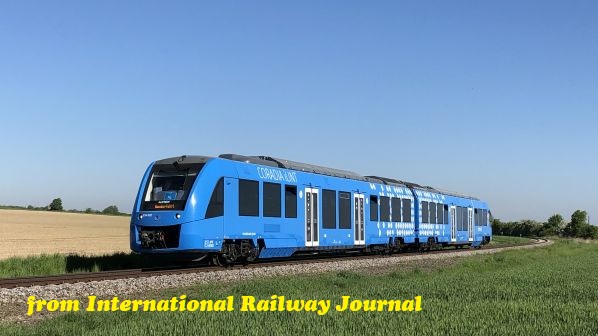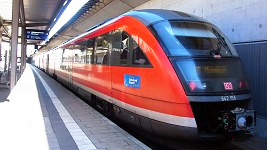The world’s first hydrogen railway was inaugurated in Germany. The hydrogen trains, produced by the French company Alstom, can reach up to 140 kilometres per hour and operate on a route section of about 100 km around Hamburg.
Hydrogen energy is expected to be the key to decarbonisation. Hydrogen can be combined with oxygen to generate electricity or burnt to produce thermal energy. In doing so, it does not emit carbon dioxide. However, not just any hydrogen energy is good enough. It makes no sense to emit carbon dioxide in the process of producing hydrogen energy.
The German hydrogen train currently uses hydrogen supplied by the chemical industry, but it plans to switch to ‘green hydrogen’ in 2024, which is produced using electricity generated by solar panels and wind turbines.

¶HYDROGEN trains began operating on the regional rail line from Cuxhaven to Buxtehude via Bremervörde, west of Hamburg, on July 25, the first time hydrogen traction has been used in regular passenger service. […] Full text is here. Referenced from International Railway Journal, 29 July, 2022
Click Here to Read the Full Original Article at Looking back now…
